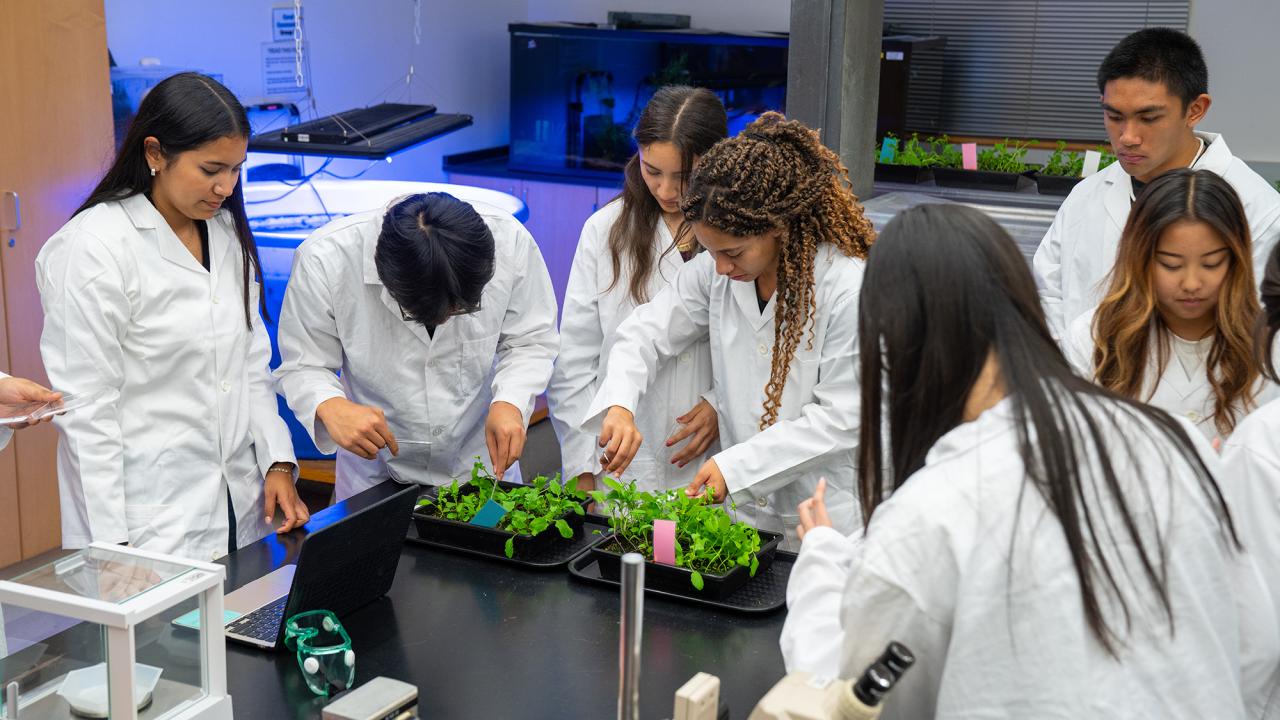
New BIO123 Series Trains Students in Modern Science
Donor Funding, Cross-Campus Collaboration, and New Labs Enhance Introductory Biology Curriculum
Weeks-long lab experiments on color-changing soil microbes and live mosquitoes, small-group discussions, and conceptual course design: these might sound like the hallmarks of upper-division science courses, but they’re all part of the BIO123 Series, the innovative new UC Davis introductory biology curriculum.
Debuting this fall after a collaborative development process, the yearlong series replaces BIS 2ABC, the basis of UC Davis biology curriculum since 2008, for students across campus whose majors require introductory biology. (The two series run concurrently this year to enable students to finish their requirements, with guidance and FAQs available online and from advisors.)
In the new sequence, BIO1 and its lab, BIO1L, cover evolution and ecology; BIO2 and BIO2L take students from molecules to cells and BIO3 goes from cells through organisms. The updated series aims to ground students in modern advancements in the life sciences. “We want students looking at original literature and interpreting data to get a sense of how a scientist works and thinks,” said Mark Winey, dean of the College of Biological Sciences (CBS).
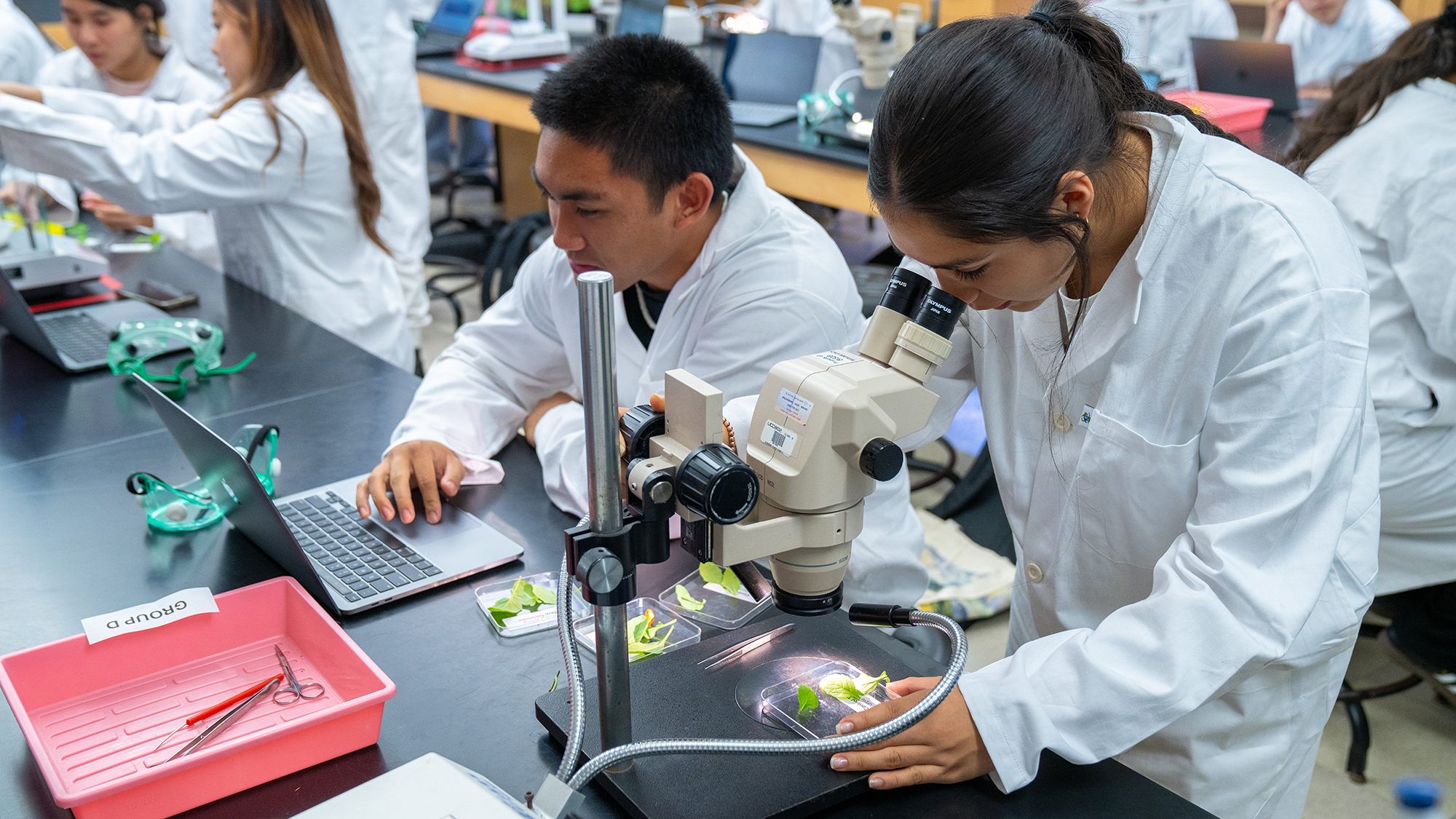
A Broad, Thoughtful Collaboration
The new curriculum was years in development, and its evolution involved stakeholders from across campus, as Winey outlined in a recent announcement. “We brought together faculty from across campus to rethink how we teach biology,” said Michele Igo, associate dean for undergraduate programs. “Our goal for the BIO123 Series was to create a student-centered curriculum that highlights biology’s interdisciplinary nature and helps students connect the life sciences to their studies, their careers, and the complex issues shaping our world.”
Although CBS is the series’ home, the courses serve students from departments ranging from anthropology to viticulture, so it was critical to get campuswide input and buy-in, said Jay Stachowicz, a professor in the Department of Evolution and Ecology and the faculty director for the series.
“No college is home to a majority of the students who take introductory biology,” said Stachowicz. “Our approach of having lots of people involved in the creation of this curriculum, faculty from different colleges teaching in it, and a steering committee with representation from each college was deliberate and will keep us responsive to the whole university community.”
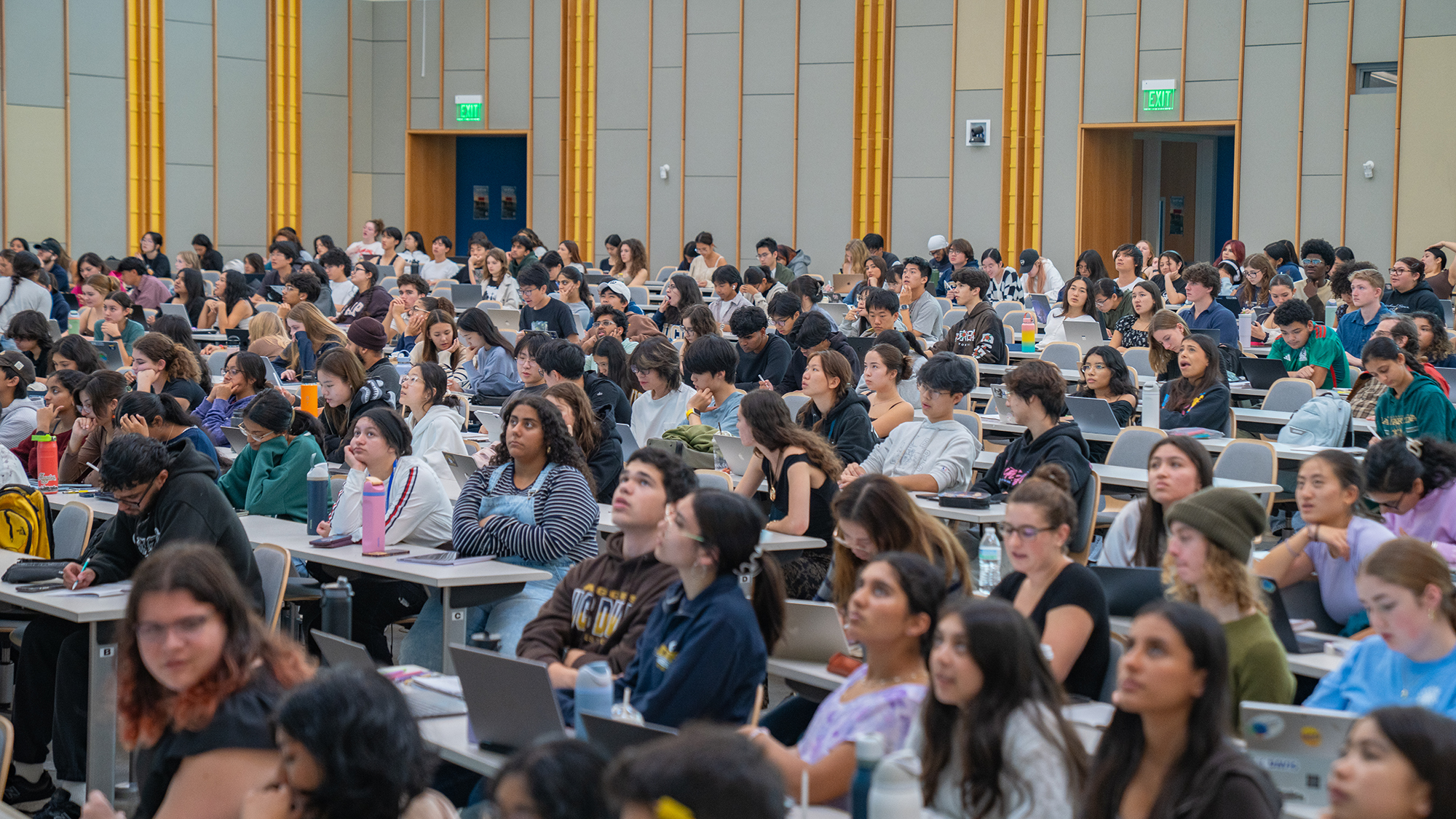
One of the challenges of developing the series, Stachowicz said, was contemporary biology’s sheer breadth. “Biology knowledge has exploded in the last 20 years. Adding everything to an introductory biology course series is impossible,” said Stachowicz. Instead, the new series privileges “learning the process of science. Our goal is teaching our students how to learn as much as it is teaching the basic facts.”
Laci Gerhart, an associate professor of teaching in the Department of Evolution and Ecology who helped lead the development of BIO1, underscored the importance of helping tomorrow’s scientists develop critical thinking: “Education has changed over the last 20 or 30 years. It used to be that you needed to have all of the content in your head because it was hard to find, but now the world’s knowledge is at everyone’s fingertips,” she said. “The difficulty is in critically evaluating it.”
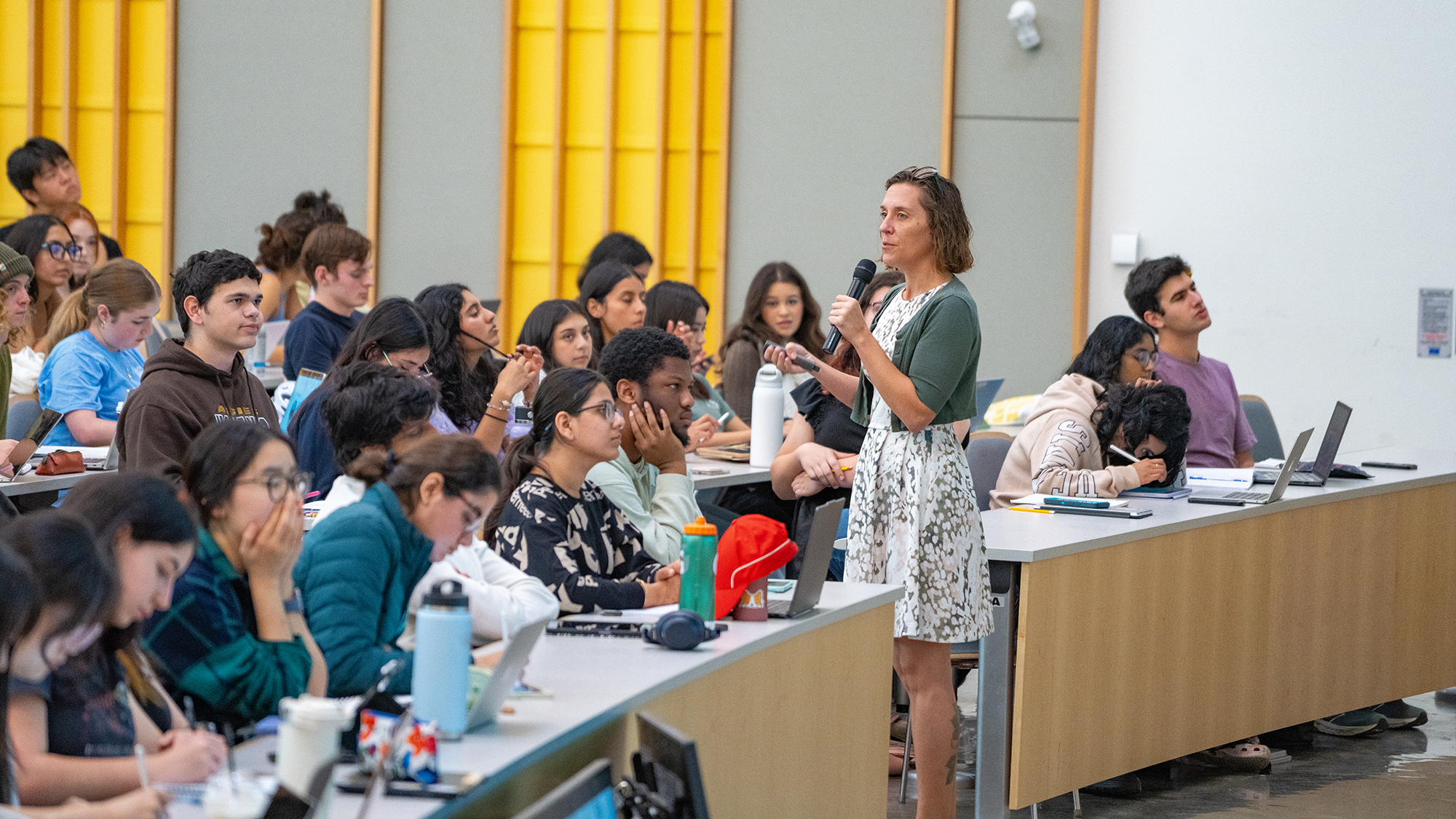
Building the Next Generation of Scientists
To develop those skills, the BIO123 Series differs from its predecessor in key ways: an increased focus on small-group discussion sections, which have been shown to increase student success; a new emphasis on discovery-based labs and the addition of a molecular and cell biology lab; and a concept-driven redesign for BIO3, which approaches integrative biology through the lens of the common problems they must solve to survive.
“We needed to introduce more cell biology and physiology into the series,” said Lesilee Rose, a professor in the Department of Molecular and Cell Biology who was instrumental in designing the course. “BIO3 is geared towards understanding major concepts of how cells work together within an organism—whether plant or animal—to do things like acquire resources or reproduce or sense the environment.”
Thoroughly overhauled and expanded, the labs offer longer modules that give students real hands-on experience with core skills, from pipetting to working with large data sets. They also encourage problem solving. “They’re discovery-oriented and provide opportunity for more open-ended inquiry and greater student choice of which questions to pursue,” said Winey.
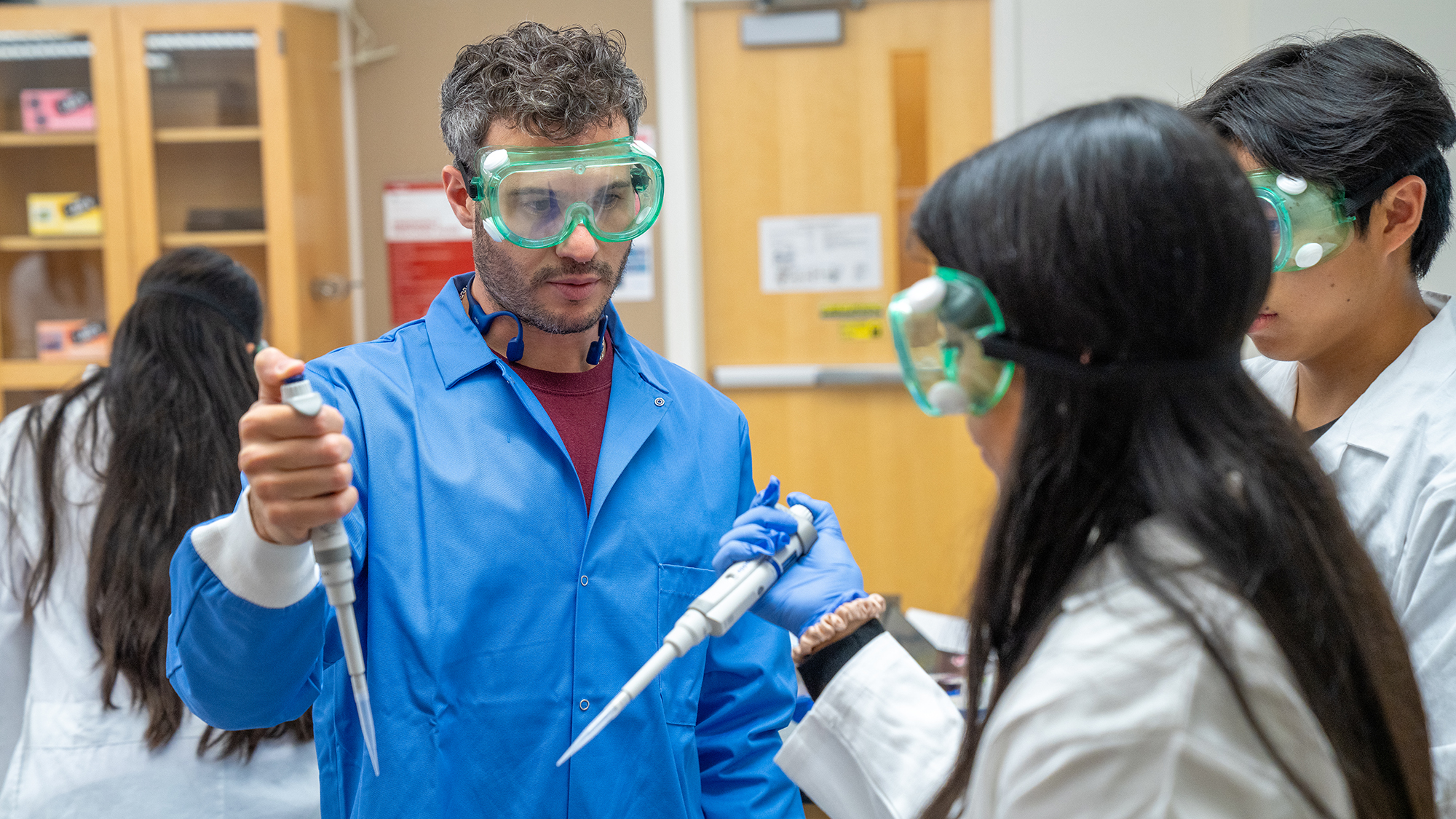
Marc Facciotti, a professor of biomedical engineering involved in the development of the BIO2 lab, credited Winey with fostering the creative environment needed to invent a completely new lab course. “Rather than start by worrying about what constraints we might run into, Dean Winey told us to start by dreaming up and sketching out our ideal lab and that we’d figure out how to get the equipment we needed later,” he said. “Fewer constraints on startup funding freed our team to explore ideas that we may have never otherwise considered possible.”
That led to an all-new emphasis on cellular and molecular biology. “The star of the BIO2L lab is a super cool non-pathogenic soil microbe. Its special power is that it’s metabolically versatile,” said Facciotti, meaning the microbe can get the energy and molecular building blocks it needs to live from various sources. “It can, like humans, live by eating complex molecules, use some of these for growth while burning the rest with oxygen for energy. Alternatively, like plants, it can get energy from the sun and suck carbon for growth from the air. All the while, the organism changes colors and exhibits varied characteristics that students can explore and experiment with.”
Funds from the Khaira Family Dean’s Support Fund, an unrestricted gift to CBS, enabled the BIO2 lab, said Winey. “Molecular biology techniques have found their way into every corner of life science work,” said Winey. “The Khairas’ gift meant we could invest funds in all-new equipment for a molecular biology lab that will benefit thousands of students a year. This curriculum change has a very broad, immediate impact across campus.”
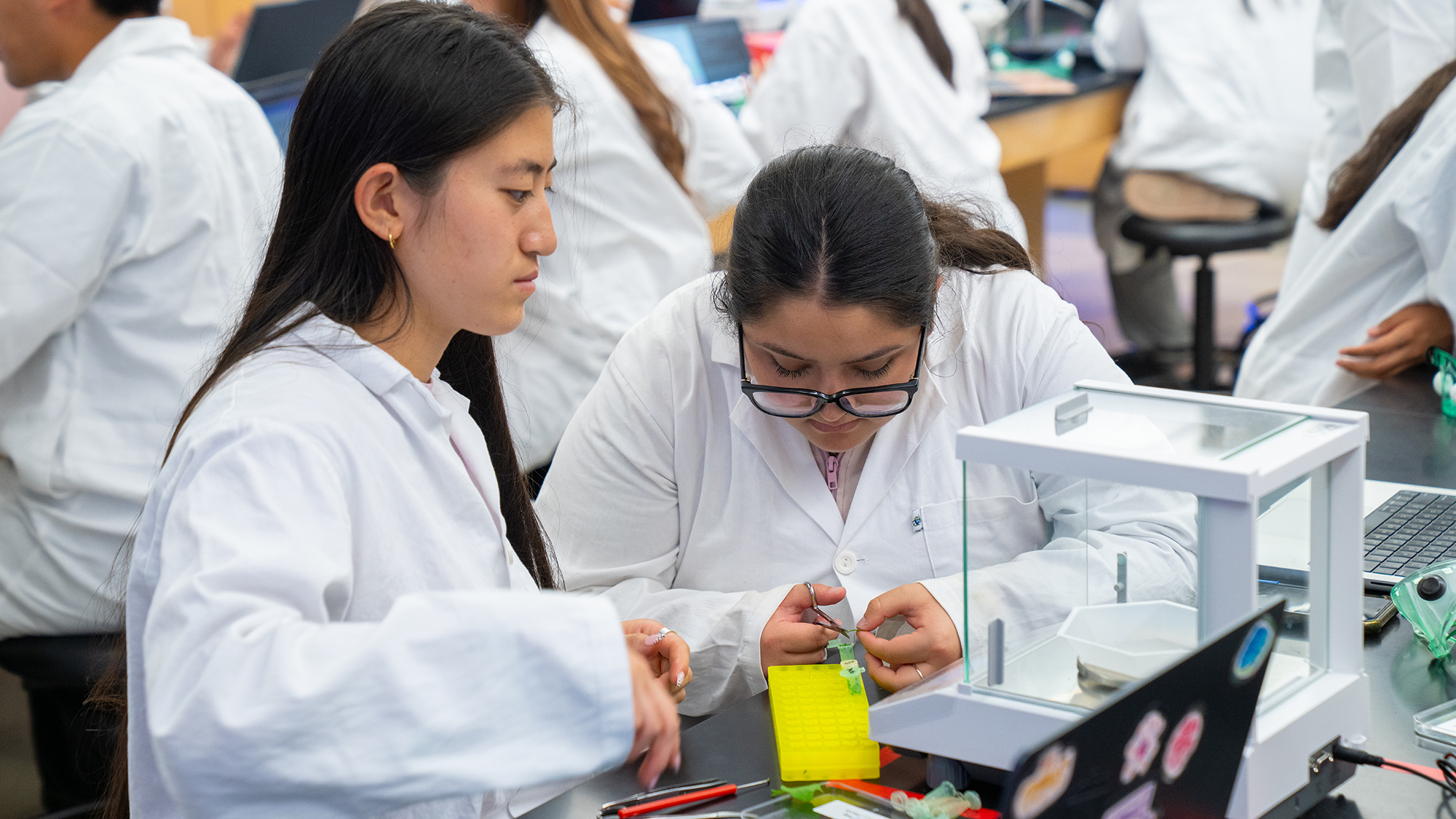
A Lasting Impact
That impact will be felt for years to come. Launching the new series comes as a capstone to the tenures of Winey and Associate Dean Michele Igo, both of whom are stepping down after the 2025-26 academic year. “Michele shared my vision for this change and has been critical to launching the new series,” said Winey. “Between the vision, finding the resources, and understanding the process, it was a big enough project that it needed consistent leadership from both of us.”
Now that the series is launched, Stachowicz will take on the leadership role as director of the BIO123 Series, another element of the new design aimed at improving learning outcomes and consistency for the thousands of students whom the redesigned series will introduce to today’s biological science. With its solid grounding in modern lab techniques, molecular biology, and contemporary scientific thought, BIO123 is poised to prepare them for their futures. “We want our students to come out of the series identifying as scientists,” said Winey. “It’s a high bar.”
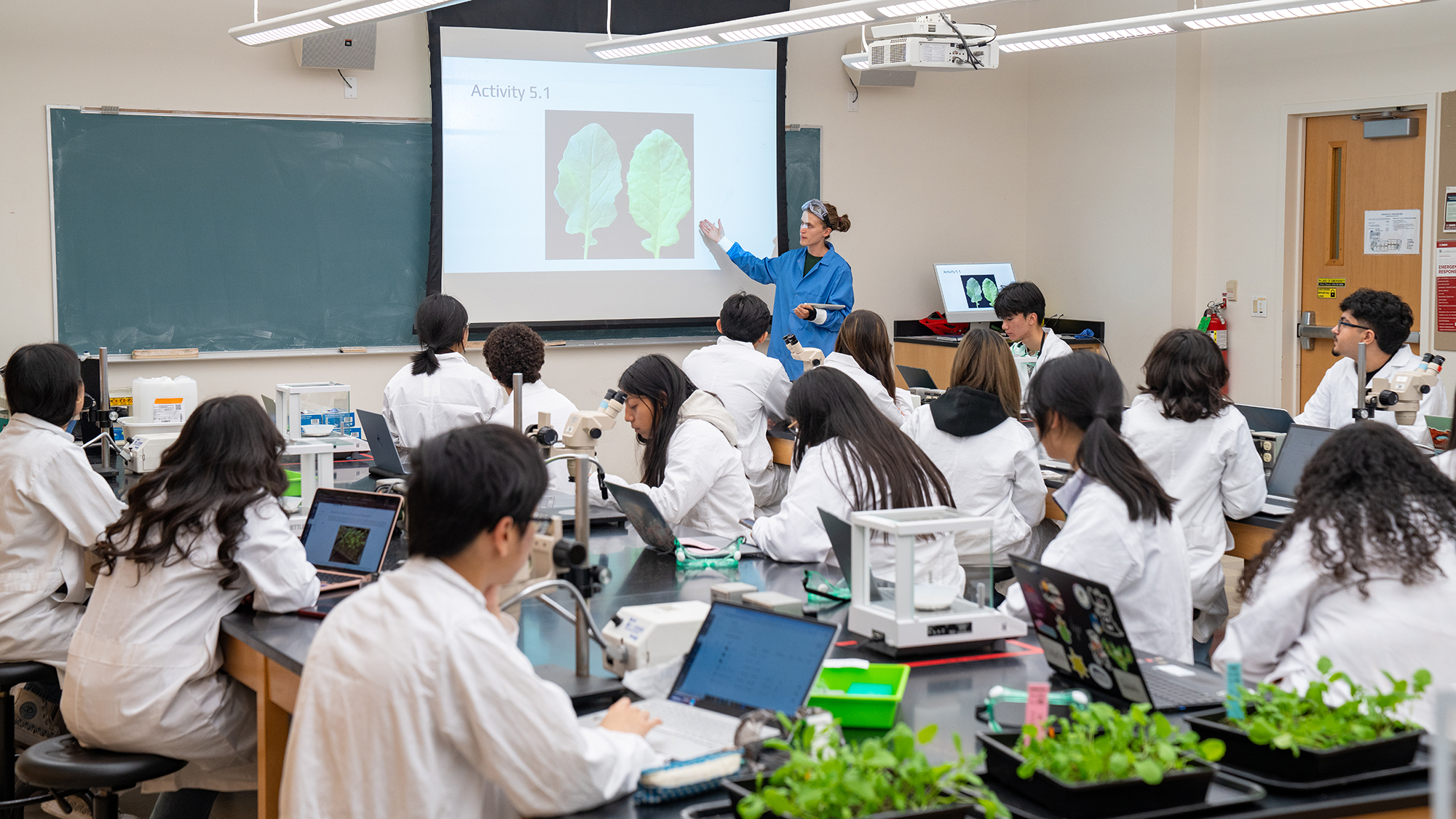
Media Resources
- Kate Washington, Ph.D., is a freelance writer based in Sacramento and the author of Already Toast: Caregiving and Burnout in America. Her work has appeared in the New York Times, TIME and Sunset, among other publications.
